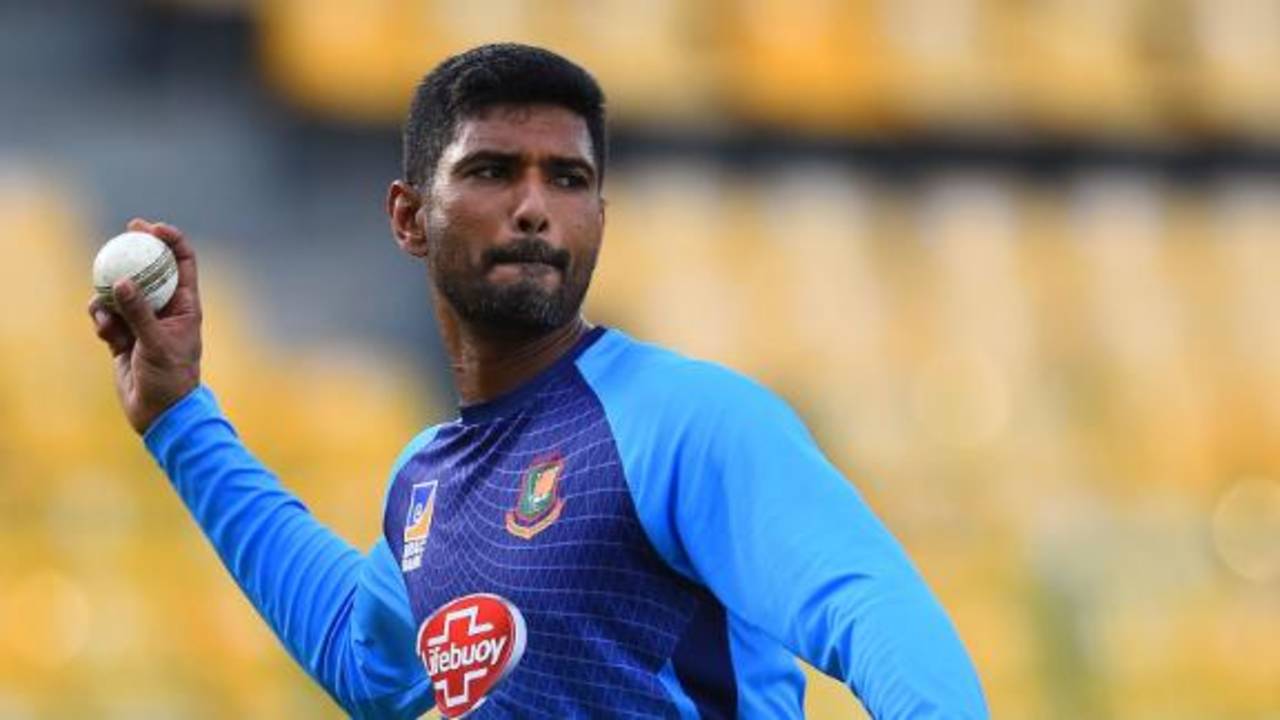Onus on calm Mahmudullah to guide Bangladesh through choppy waters
In the aftermath of the Shakib incident and the players' strike, there will be greater pressure on the stand-in captain
Mohammad Isam
02-Nov-2019
After the ICC's decision to ban Bangladesh Test and T20I captain Shakib Al Hasan, there were questions about his replacements for the India tour. And minutes after Shakib addressed a press conference, Akram Khan, the BCB cricket operations head, named Mahmudullah as the T20I captain, while Mominul Haque was named to lead the Test side.
It was the obvious choice, considering Mahmudullah had been Shakib's deputy and is Bangladesh's most improved T20 player in recent years. And with media scrutiny swelling to a crescendo, Bangladesh didn't want to risk a newbie at the helm - there were reports it could be Mosaddek Hossain, who isn't part of the senior group.
Mahmudullah has captained Bangladesh in 11 internationals, usually when Shakib has been unavailable for one reason or other. He also has a decent record in the Bangladesh Premier League (BPL), having led Chittagong Vikings and Barisal Bulls to the finals in 2013 and 2015 respectively.
Mahmudullah is known as a calm, steadying influence who likes to lead by example, and has established himself as Bangladesh's key batsman in the middle order. Between 2007 and 2015, Mahmudullah had a strike rate of only 103.78 in T20Is, but has lifted to 131.96 in the past three years after former coach Chandika Hathurusingha made him the finisher.
Mahmudullah's big-hitting has helped him become Bangladesh's go-to man in the slog overs, and his strike rate in this phase has been nearly 165 in the last four years. Mahmudullah hasn't made it to the IPL yet, but he has been part of the CPL, having represented Jamaica Tallawahs and St Kitts & Nevis Patriots.
Shakib's ban is a massive blow to a Bangladesh team that is already depleted by the absence of Tamim Iqbal, who has opted out of the entire tour to be with his pregnant wife. Bangladesh will be 151 T20Is lighter without them and will miss Mashrafe Mortaza, who retired from the shortest format in 2017, even more in India.

Mahmudullah will lead a severely depleted T20I side in India•Getty Images
The onus is therefore on Mahmudullah - and Mushfiqur Rahim - to raise their batting to plug the gaping holes. They will also be entrusted with the responsibility of providing inputs to a young bowling attack. Mustafizur Rahman has troubled India in the past, but his recent form has been erratic, giving Bangladesh more headaches. In the absence of Shakib, Mahmudullah will have to rely on Arafat Sunny, who last played a T20I more than three years ago, to lead the spin attack.
On top of all that, the Shakib exit cloud hangs heavy over the team. In addition to preparing himself to deal with questions on that front, Mahmudullah, in the main, will have Bangladesh's image to uphold, be a statesman. All while, possibly, thinking about the flurry of activity in the last two weeks.
Since October 21, when Mahmudullah read out the players' demand for a return to the Dhaka Premier League's open-market policy, a lot has happened in Bangladesh cricket. The players had to endure board chief Nazmul Hasan's tirade during a meeting, and then they got together to figure out their next course of action. They eventually decided to meet the BCB chief and the directors, but Hasan's aggression threw them off there. Then, once that fire was put out, came the Shakib development.
Mahmudullah will now have to deal with greater scrutiny after having the BCB bow down to some of the players' demands. It's a departure from previous years in Bangladesh cricket, where the board has always had the final say. Player power was never a thing in Bangladesh cricket in the past, but when Tamim, Shakib, Mushfiqur and Mahmudullah played their parts in the strike to press home their demands, they not only became bigger heroes for the younger players but also invited the wrath of the BCB.
Against a formidable India side in hostile conditions in Delhi, Bangladesh will have their backs to the wall. Can Mahmudullah keep things in control? He has the job, and if he can, it might also calm things down back home.
Mohammad Isam is ESPNcricinfo's Bangladesh correspondent. @isam84
